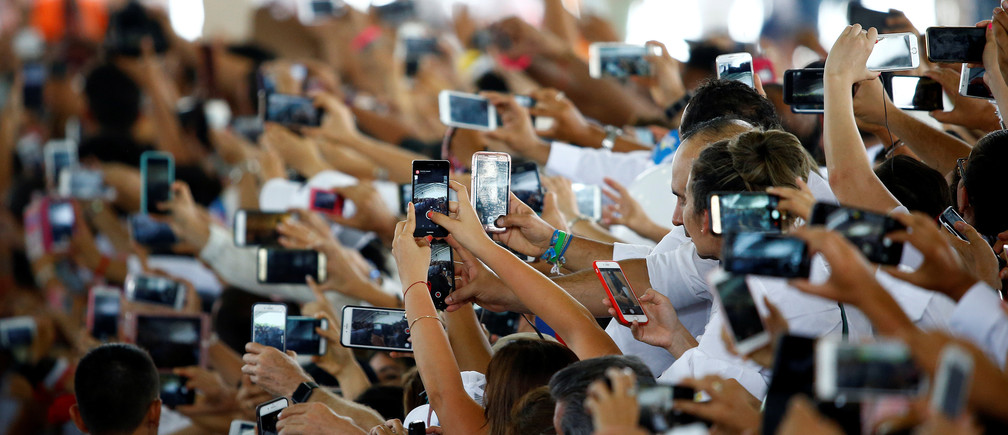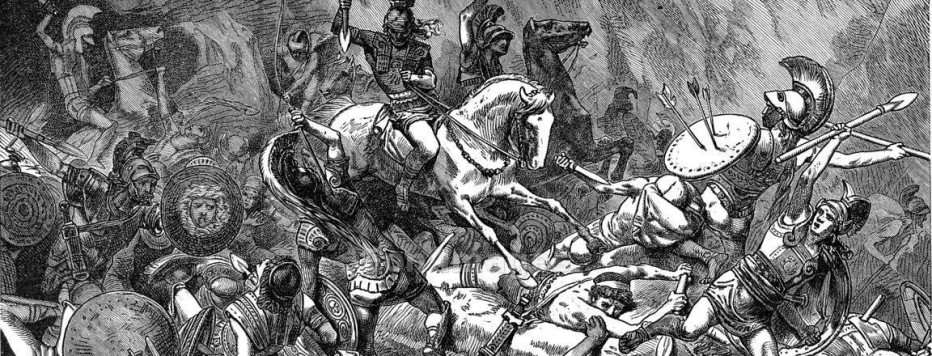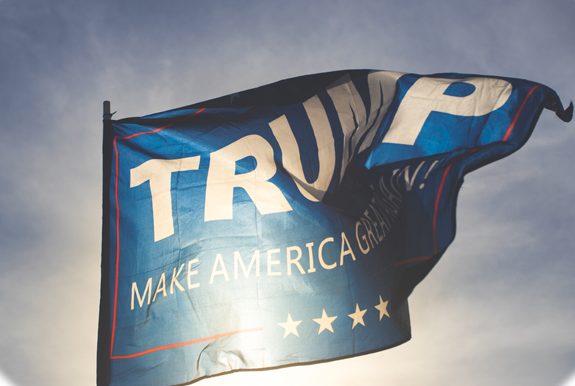Democracy and despotism in a digital age.
The Chinese Art of War

The American people deserve honesty about who is at fault for the virus disaster.
On January 28th, at a meeting of the World Health Organization, Xi Jinping said “the virus is a demon and we cannot let that demon hide.” An interesting turn of phrase for, as a matter of high government policy, the demon was driven from the shadows of a lab in Wuhan, China, and made to travel the world—most notably to the United States, where the virus would ravage the bodies of Americans many of whom would die as a result.
That this attack might have a political purpose—to harm the United States and unseat Donald Trump—is, however, beyond the pale of respectable discourse.
Nearly any other excuse is given for what might have happened in Wuhan. Most notable is the Chinese fashion of consuming exotic animals including bats and pangolins. Although they do such things and such things do have the potential to spread viruses, an accepted narrative is that this vector of transmission amounts to an honest mistake, the kind of thing that might happen at any old place at any old time. That there was a Level-4 virology lab in Wuhan is dismissed as mere coincidence, and to suggest that the virus might have escaped from there is something akin to racism or worse.
Although the President has asked for this to be investigated, one must be careful, in the meantime, not to suggest that the Wuhan virus was a bioweapon designed for and purposely used to kill Americans. That charge brings with it the potential for nuclear retaliation, for American strategic doctrine would be to respond to an attack by a weapon of mass destruction with a weapon of mass destruction of our own.
To suggest such a thing requires that one dismiss it immediately, so terrible would be the chain of events that would follow. But to do so is to engage also in a kind of self-deception about what coronavirus in fact has ended up being: a biological agent with the quality of a weapon spread from China to the United States by design—even if that design was normal international travel, and even if the virus was used not merely to run up the body count but to damage our economic and political health.
Lest anyone doubt the political nature of the pandemic, the outbreak in Wuhan was built on Chinese deception from the very beginning and quite intentionally. Once it was clear that there was an outbreak of yet another coronavirus, the United States asked to be let into Wuhan to do our own analysis of their crisis. America has not been allowed to do so to this very day. What must U.S. policymakers have made of the rebuff? To suggest that it might have had a chilling effect is to put it mildly.
The sensible response by President Trump, beyond halting the ability of foreign nationals to fly into the U.S. from China, was to match the real-world information his government was able to discern with what could possibly happen to the United States. The medical response to the crisis had to be built on a worst-case scenario: that the Wuhan Virus was radically more deadly than anything we had seen in modern times. To have done otherwise, given Chinese behavior and active measures to deceive the United States and the West, would have been irresponsible.
And the result is also what might have been expected. Nearly 330 million Americans have been sheltering in place, stopping the largest and most powerful economy on earth. Almost thirty million Americans have lost their jobs despite emergency economic legislation. More will follow. Businesses large and small are making calculations about whether two or three months of economic support will be enough to survive this unprecedented shutdown. The actions taken by the government, seemingly necessary at the time, amount to a kind of nationalization of both major industries and small businesses. And, even after all this, there is massive pain being felt in America’s heartland over the economic uncertainty.
Naming Names
As thought experiments go, it is not far-fetched to consider the Wuhan Virus an attack against the United States. It is an elementary position of Chinese statecraft not to engage an enemy directly. What better weapon than one that looks for all the world like a painful mistake? At the same time, contrary to universal expectations about bioweapons, it is not as if the new coronavirus threatened to wipe out millions and millions of Americans. Although President Trump often states that 2.2 million Americans could have died, that would only have occurred had there been a full-scale societal breakdown where the infrastructure for transport and food supply, water, power, and sanitation had totally collapsed because of the severity of the virus. The steps the President took near immediately ensured that was not going happen. And, as we are now discovering, the virus is not as lethal or debilitating to as many as was once feared.
So let us continue the thought experiment: if the virus was not going to kill us all, what was its purpose? Here the most obvious answer may well be the right one. The only reasonable response to a highly contagious novel coronavirus of unknown lethality is a lockdown of the national economy. As a goal, this outcome itself has a kind of strategic beauty. Because precautions could ultimately keep the death toll comparable to that of a bad flu season, the pandemic will hardly be seen to justify a great nation going to war. But the damage done has been immense. The question then becomes: why?
That the United States is in an economic war with the People’s Republic of China seems rather obvious. At the heart of the Trump presidency is a defense of the American people from the economic predations of the PRC. The President’s Phase One Trade Agreement was designed to stop China’s theft of intellectual property, forced technology transfers, and unfair business practices. President Trump’s resolute stance was unprecedented. The hardline elements under Chairman Xi could not have been pleased with such a result.
It was, however, not such a bitter pill for the Chinese since, as they signed Phase One on January 15, they knew that the virus was already spreading among an American population that would have to be locked down since, again, the U.S. knew neither what it was dealing with nor how to treat it. This Communist Party officials made sure of.
The resulting state quarantines have devastated the U.S. economy and demoralized those millions of Americans who were counting on President Trump to set things right with Communist China. Would the PRC have had any interest in all this? Indeed, are they sending a message to future American leaders that this is the cost of standing up to China?
In this regard, what we have been calling the invisible enemy seems not so invisible. It appears rather clearly as the Communist Party of China and those within the People’s Republic who support it.
This is worth stating, for there is a strategic and moral danger in failing to assign blame where blame is due.
If you are asking men and women to make sacrifices necessary to remain free people, it is good to shoot straight with them about the true state of affairs. It is what is owed a free people. Also, failure to do so signals to Communist China a moral weakness: that the American citizenry is incapable of understanding the threats that they face and the responses that will be necessary for their continued freedom and prosperity. It is one thing for the Communist Chinese to deceive us. It is quite another to deceive ourselves.
It is understandable that President Trump is hesitant as yet to denounce the Communist Chinese with the unremitting vitriol they deserve. To win this conflict requires diplomacy at the highest levels. But Trump’s approach will soon be tested, for there can be little doubt that what has occurred here was no accident. Even if the spread of the virus in the lab in Wuhan to a human was unintentional, the handling of the spread by Communist authorities appears to be well-calculated with a rather specific intent. The lengths to which the Chinese went to buy up the world’s supply of personal protective equipment in December and January only underscore this.
Xi Jinping and the Communist Chinese are masters of deception and political manipulation. It is not possible to rule an empire of 1.4 billion people without it. When combined with the apparatus of a ruthless police state, a modern strategic arsenal, an intelligence service that can reach into any center of power on the globe, and a determination to reorder the world, they have presented themselves as a most formidable foe to the United States and the West. The American people need to understand this.
It is now up to President Trump to hold the People’s Republic of China to account for what it has done—and up to us to make sure that nothing like it ever happens to us again.
The American Mind presents a range of perspectives. Views are writers’ own and do not necessarily represent those of The Claremont Institute.
The American Mind is a publication of the Claremont Institute, a non-profit 501(c)(3) organization, dedicated to restoring the principles of the American Founding to their rightful, preeminent authority in our national life. Interested in supporting our work? Gifts to the Claremont Institute are tax-deductible.
In 2010, Claremont Institute Senior Fellow Angelo Codevilla reintroduced the notion of "the ruling class" back into American popular discourse. In 2017, he described contemporary American politics as a "cold civil war." Now he applies the "logic of revolution" to our current political scene.
Claremont Institute Senior Fellow John Marini is one of the few experts on American Government who understood the rise of Trump from the beginning of the 2016 election cycle. Now he looks to the fundamental question that Trump's presidency raises: is the legitimacy of our political system based on the authority of the American people and the American nation-state, or the authority of experts and their technical knowledge in the service of "progress"?




